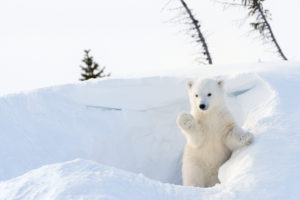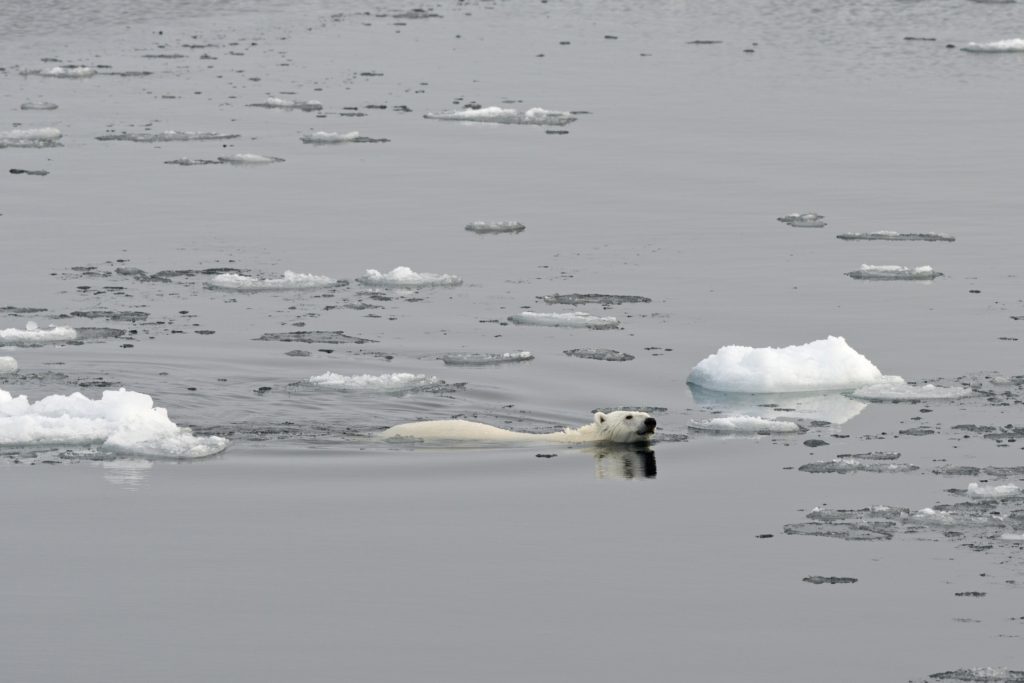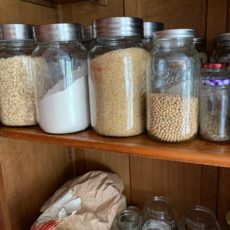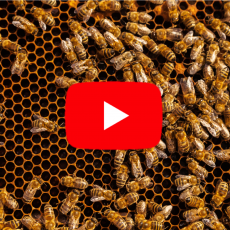
International Polar Bear Day is February 27th. We all love the videos of the curious creatures trying to pop their heads into not so closed vehicle windows, their fascinating courtship and the cubs playfully oblivious to their inevitable doom. But could a zoo one-day be their only habitat?
In honor of this wondrous animal, let us look at how climate change is affecting the Polar Regions and the life that thrives there. Scientists estimate that the Polar Regions will warm more than any other region if the concentration of greenhouse gases continue to rise and we will see the devastating results in the Arctic first.
We’ve previously discussed the worlds over use of fossil fuels and unsustainable CO2 emissions. Studies have shown that when black carbon is deposited on snow and ice, the soot-covered snow or ice absorbs more sunlight, leading to surface warming. This is bad news for the Arctic where Carbon emitted within the Arctic Region has nearly a 5 times greater surface temperature response when comparing to regions at lower latitudes.
Have you ever considered how much Arctic Sea Ice is lost from our Carbon Footprints? Some countries are higher than others but the table below shows you exactly how much ice is lost per year.
| Average CO2 per Capita (Tons) |
Arctic Sea Ice Lost per Person (sq.ft) |
|
| United States | 16.5 | 485 |
| Canada | 16.4 | 482 |
| Australia | 17.6 | 517 |
| UK | 6.3 | 185 |
| Germany | 9.8 | 288 |
| Russia | 11.0 | 323 |
| China | 6.8 | 200 |
Polar bears require this ice to hunt and give birth. The ice is critical to their survival, as they use the ice to travel around different areas in search of food. It will not just be the Polar Bears that are affected. Seals, walrus and sea birds all rely on the Arctic Region as their habitat. Ice algae that grow underneath the bottom of the porous ice is a source of food for the marine life below. The melting ice will change salinity and temperature of the surface water, which in turn will impact the food chain.

Does it seem fair that they will not only lose their homes but a whole ecosystem will be destroyed? While survival on our planet has always been about adaptation and evolution, the unusually high rate of change in the Polar Region does not leave the inhabitants with any chance. We should take note that if this diverse wildlife that has learned to thrive in some of the harshest conditions on our planet cannot adapt so quickly, how will we be able to?
On International Polar Bear day, let us all take a moment to think about this wonderful species and consider how our actions will affect their home. They won’t thank you for helping them out, but you will be rewarded when you settle into the couch and hear the soothing tones of David Attenborough narrate their daily lives. Or maybe take solace in the knowledge that responsibly sharing our planet has its own rewards.


